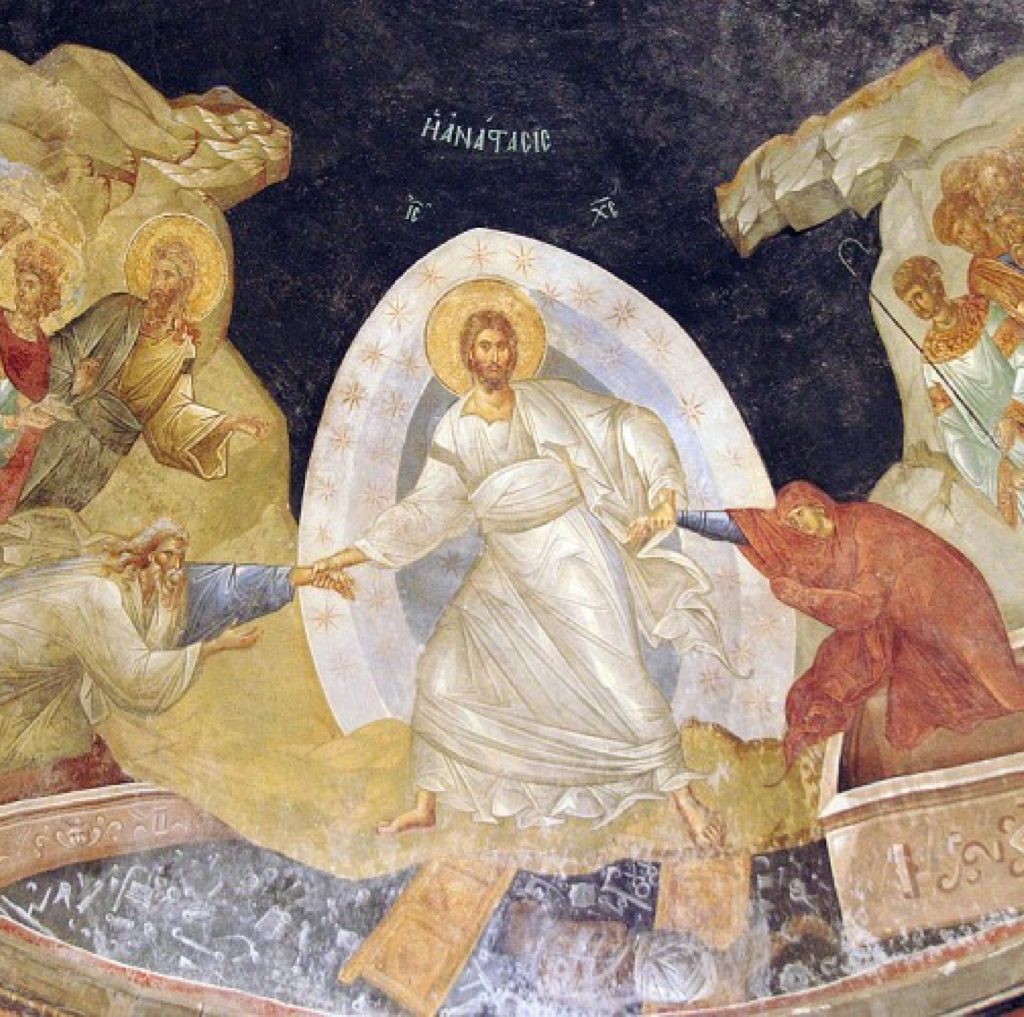Excerpted from John Henry Hobart, The State of the Departed, 1857.
Blessed be God—this word we have—God hath spoken, “The spirit shall return to Him who gave it.” This, believer, is thy confidence and thy rejoicing. Thy spirit returns to God—to God all glorious and all good; who so loved thee as to give for thee his only begotten Son; and who in the blood of his Son hath sealed the assurance that thou shalt be ever with Him. Canst thou doubt whether in his presence thou shalt be happy? Ah! the happiness reserved for thee by thy God, thine eye hath not seen, thine ear hath not heard, and thy heart cannot conceive. But, When does the spirit enter on this state of complete felicity?
There cannot be a moment’s doubt, that departed saints do not enter on the full fruition of bliss immediately on their release from the body. In what does this fulness of bliss consist? In the union of the purified spirit with the glorified body. But until the voice of the Son of God calls to the corruptible to put on ineorruption, and the mortal immortality, that body is confined to the tomb, embraced by corruption, mingled with the dust. Admission to heaven, the place of the vast universe of God, where the vision of His glory, more immediately displayed, shall constitute the eternal felicity of the redeemed, does not take place, according to the Sacred Writings, until the judgment at the great day; when the body, raised incorruptible and glorious, shall be united to the soul, purified and happy. While the soul is separate from the body, and absent from that heaven which is to be her eternal abode, she can not have attained the perfection of her bliss.
Will the privileges of believers be greater than those of their divine Head? His glory in heaven consists in the exaltation of his human nature — of his glorified body in union with his perfect spirit. But in the interval between his death and his resurrection, his body was embalmed by his disciples, washed with their tears, and guarded in the sepulcher by his enemies. His spirit therefore was not in heaven until He ascended there after his resurrection. “Touch me not,” said He to Mary Magdalene, when He had risen from the dead, “for I have not yet ascended to your Father and my Father, to your God and my God.” Our blessed Lord, in his human nature, was not in heaven until after his resurrection. And will a privilege be conferred on the members which was not enjoyed by the Head? “This day thou shalt be with me in Paradise,” was his language to the penitent thief associated with him at his crucifixion—in Paradise, not in heaven; for the happiness of heaven supposes the happiness of the whole man, of his soul united to his body. But on that day in which the Savior assured the penitent subject of his mercy that he should be with Him in Paradise, the body of the one was consigned to corruption, and the body of the other to the tomb.
What, then, is the state of the soul in the period between death and the resurrection—between her
separation from the body and her reunion with it—between her release from this her state of exile, and her admission to final and complete felicity in her eternal home? Is she in a state of unconsciousness? All probability is against the supposition. Consciousness seems a necessary attribute of spirit in a disembodied state. The temporary suspension of consciousness in the present life arises from that union of the soul with the body, which in many cases controls, and changes, and suspends her operations. But a state of unconsciousness is a state of oblivion—and this must be an object of aversion to the happy spirit. In the present life indeed there is often an oblivion of care that corrodes, of adversity that wounds the spirit—or that which, from the connection of the body with the soul, is necessary to the renewed exertion of its powers, and to renewed enjoyment. But when the soul, with her mortal tabernacle, has shaken off her sins and sorrows, this oblivion cannot be necessary; it must interrupt her enjoyment—it cannot therefore be assigned her in a state which, her probation being finished, is a state of reward and of bliss.


ivermectin 6 mg without prescription – purchase carbamazepine pill order tegretol online cheap
Your comment is awaiting moderation.